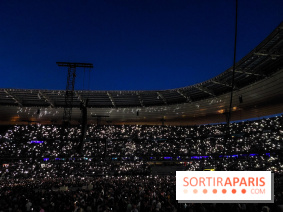Over 50 hectares of constructions in Saint-Denis, Saint-Ouen-sur-Seine and on Île-Saint-Denis: Paris 2024 Olympic villages are taking shape. These installations are expected to house “14,500 athletes and their staff during the Olympic Games then 9,000 athletes and their staff during the Paralympic Games”, the Paris 2024 website reads.
To host the Olympic and Paralympic Games, the French capital city has invested in major works changing the very faces of Île-de-France cities. After many years of works and construction, destroying all these structures after they are barely done is unthinkable. But then, what to do with them once the Games have passed?
“We did the opposite of what was done so far: we paid attention to the heritage to adapt it to the Games”, says Isabelle Vallentin – deputy director general at Solideo, the delivery company of the Olympic works – in Le Parisien. Life projects are also developed at the same time as the event.
Paris 2024 also says the Olympic village areas are to bring – from 2025 – “More than 2,800 new housing units (2,000 family homes, 800 residence units), 1 student residence, 6 hectares of green spaces incl. a public park in the center of the neighborhood,planted areas for pedestrians and non-motorized vehicles, 120,000 sqm of offices, other business premises and services, for 6,000 employees.”
Therefore, for instance, in Saint-Denis, the Olympic village will be turned into accommodations, stores, university residences, a medical center, offices… In November 2021, Elisabeth Moreno – delegated Minister to the Minister for Gender Equality – said in an interview with L’Equipe that “women victim of domestic violence will enjoy, from the end of Paris 2024 Olympics, accommodations to help them put themselves together. Housing is a major step in the reconstruction of these women”.
These major worksites have been made to be more sustainable: the building permit “enables to allow the future evolution of a building from its conception. This is a major tool that, I hope, will be extended past the Games for it improves reversibility and avoids demolition”, Olivier Wigniolle – director general at Icade, developer of an islet in Saint-Ouen – says.
These new regulations especially guarantee the accessibility of housings to disabled people. Thermal comfort and eco-friendliness also influenced the construction of the villages, designed to last despite the climate change.
The commercialization of all these new spaces will be subject to a small housing war, but not likely to start prior to 2025.















